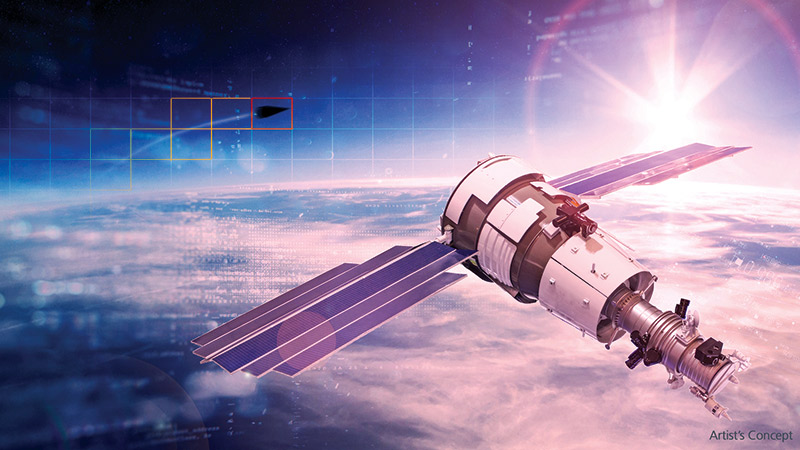DARPA selects BAE Systems to develop machine learning capabilities for space situational awareness
BAE Systems will develop machine learning capabilities aimed to help the military gain better awareness of space scenarios. Machine learning capabilities aimed to help the military gain better awareness of space scenarios.
BAE Systems has been awarded a Phase 2 contract to develop machine-learning capabilities aimed to help the military gain better awareness of space scenarios for the U.S. Defense Advanced Research Projects Agency (DARPA). The goal of DARPA’s Hallmark Tools, Capabilities, and Evaluation Methodology (Hallmark-TCEM) program is to not only develop and evaluate tools and capabilities that increase an operator’s understanding of space events, but also enhance the ability to select effective courses of action for any given situation.
Space assets such as satellites are becoming increasingly important and relied upon by the Department of Defense for communications, surveillance, and security. As part of Hallmark-TCEM, BAE Systems’ FAST Labs™ research and development team will build cognitive-based machine learning algorithms and data models aimed to give space operators the ability to identify abnormal activities and predict possible threats. The team will build on Phase 1 work of the program, and continue to leverage the decade-long development of the company’s Multi-INT Analytics for Pattern Learning and Exploitation (MAPLE) technology with a solution called MAPLE Automates Joint Indications and Warnings for Cognitive Counter-Space (MAJICS).
“Our technology builds data models based on normal activity and then ingests large amounts of real-time, streaming data to compare against the normal model and determine if any abnormal activity is occurring or will occur,” said Dr. John Hogan, product line director of the Sensor Processing and Exploitation group at BAE Systems. “By using this technology, we hope to reduce the operator’s workload by providing a solution that will automatically predict space events such as launches or satellite movements based on millions of pieces of data, helping them make rapid decisions to avoid any potential threats.”
BAE Systems’ research on the Hallmark-TCEM program adds to the company’s machine learning and artificial intelligence segment of its autonomy technology portfolio. The capabilities developed under the Hallmark-TCEM effort will be integrated into DARPA’s Hallmark Software Testbed (Hallmark-ST) program. Work for the program will be completed at the company’s facilities in Burlington, Massachusetts and Reston, Virginia.

